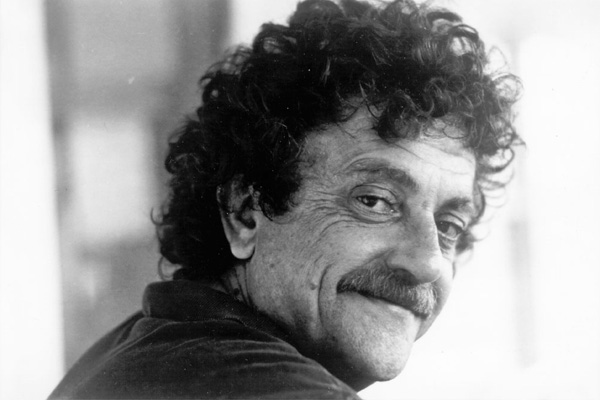Vonnegut will always have a special place in my heart. He was my first favorite
Armageddon in Retrospect is a collection of essays published posthumously, one year after Vonnegut's death. The majority of the essays explore the meaning of war and it's impact on those involved. While there is a focus on WWII and the bombing of Dresden, Vonnegut's writing is as relevant today as it was fifty years ago. I especially liked the introduction, written by Kurt's son, Mark Vonnegut, where he paid tribute to his father and offered an interesting perspective of a man and his writing:
“He often said he had to be a writer because he wasn't good at anything else. He was not good at being an employee. Back in the mid-1950's, he was employed for Sports Illustrated, briefly. He reported back to work, was asked to write a short piece on a racehorse that jumped over a fence and tried to run away. Kurt stared at the blank piece of paper all morning and then typed, "The horse jumped over the fucking fence," and walked out, self-employed again.”I have to say this wasn't my favorite collection of Vonnegut's - some stories outshine the others - but it's worth the read, nonetheless. If you're new to Vonnegut's essays, I would suggest starting with A Man Without A Country.
Publisher: Putnam, 2008





